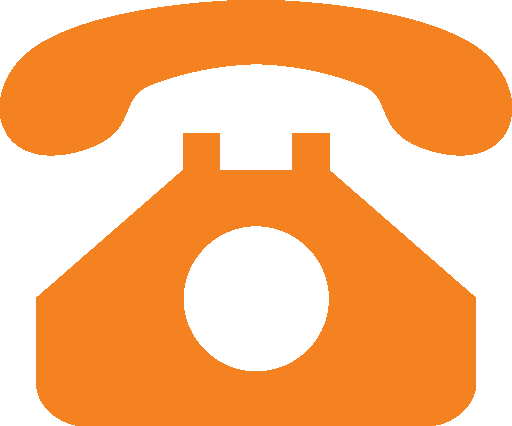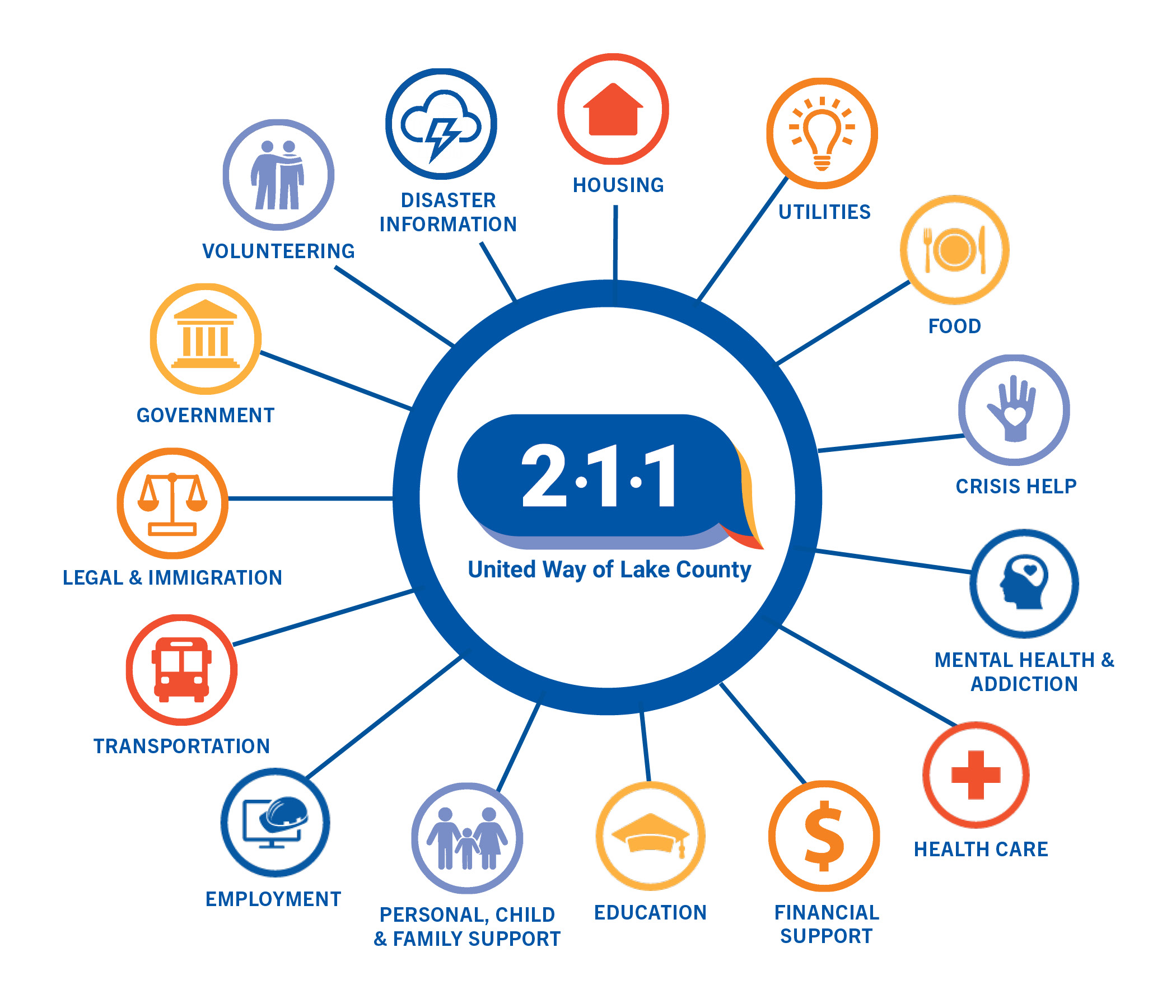What is 211 Lake County?
211 is the place with the answers you need to live well in Lake County, Illinois.
211 is Lake County’s free one-stop shop for help:
- It’s a telephone helpline.
- It’s a texting chatline.
- And, it’s this very website you’re visiting right now.
211 is always open, always confidential, and always free. Speak to a live person when you call in English or Spanish.
The 211 team will also interpret to more than 150 other languages.
 Phone Call
Phone Call
Right this very minute, there are people on the other end of 211 waiting for your call.
United Way of Lake County has trained them to guide you to the help you need.
If you are outside of Illinois looking for help in Lake County or having an issue reaching 211, call 1-855-677-5253 toll free.
 Text
Text
Text your zip code to 898211. People at our 211 contact center are waiting for your texts at this moment.
An expert navigator will text you back. Then all you have to do is text your question to begin getting the help you need.
 This Website
This Website
Take a look through this whole website. Click the colorful icons on our home page to search for services or you can search by a custom topic.
You’ll find lots of organizations you can call right away. They will help solve problems you may be having….everything from money issues to child care to finding a job. And, if you would like to help others, click on the Volunteering icon.
Examples of How 211 Can Help You
- Your electricity was just turned off because you couldn’t pay the bill. Call 211 to find out how to get help catching up on your payments.
- Your grandmother can’t live alone any more. You wish you could take care of her, but you work all day. Call 211 to learn how to find a caring, safe place for her to live.
- Someone in your home has started hitting you. Use 211 to find a safe place to go right now and to make a plan for the future.
- Your teenager seems to have lost friends and spends too much time alone in his room. 211 can guide you to a mental health expert who can help you decide what to do next.
- You just got a new job but are not sure how to get there. 211 can send you to transportation resources that can help.
Who’s in Charge of 211?
United Way of Lake County leads 211 but many, many other health and human service providers in our county, including the Lake County Government, contribute time, talent, and money to make it run smoothly. UWLC is extremely grateful for their support. UWLC has a contract with Interface Children and Family Services, a leading nonprofit, to be our 211 contact center. Trained 211 experts who work at the contact center are standing by to take your phone calls and texts.

Why 211?
211 is an easy to remember, 24-hour information and referral helpline. It’s designed to reduce time and frustration by acting as a central access point to the health and human services in Lake County.
Without 211, people are often faced with finding services on their own. The result is a lot of time spent calling around trying to find the answer to their need.
In addition, service providers who operate to help people with specific needs often find themselves handling calls that have been misdirected to them. These calls force the providers to spend time redirecting the callers, leading to callers being upset and providers spending time in ways that prevent them from focusing on their true missions.
United Way of Greater Atlanta was the first to introduce 211 in 1997 and it’s now a national movement. United Way Worldwide is committed to the vital service 211s provide to communities all across the country. Now, 99% of the United States has access to 211.
Frequently Asked Questions
Is 211 available in languages other than English?
Who answers the phone or responds to texts?
What types of resources are included in the 211 database?
How can an agency or organization be included in the 211 Lake County resource database?
How can I request an update to information about my agency or organization?
How is United Way of Lake County's 211 funded?
What if I have trouble connecting to 211?
If you’re a Lake County resident in need of help and calling from a cell phone outside of Lake County or if you’re having trouble connecting to 211, call 1-855-677-5253.
If you have trouble calling 211 at work, contact your information services staff to change permissions on the telephone system to allow 211 dialing access. Telecommunications may need to be modified to work with complex phone systems that go through private switches to reach an outside line. Organizations have found success establishing a 211 infrastructure by mimicking 911 implementations at a high level by calling 211 from multiple types of phone connections.
If you have trouble calling 211 at home, please email This email address is being protected from spambots. You need JavaScript enabled to view it. with the following information (your phone number, whether the phone is a landline or cell phone, phone provider, where you were physically located when you made the call/text).
If you’re looking for help in another area outside of Lake County, Illinois, visit 211.org to find a list of toll free numbers to call.
United Way of Lake County’s 211 service covers Lake County, Illinois.
211 is also available is some other Illinois counties, including nearby Cook, DuPage, Kane and McHenry. Through June 2023, 99% of the United States had access to 211. United Way of Lake County is proud to be leading the way as a model to bring 211 services to all Illinois communities.
Note: Municipalities that border McHenry County, such as small portions of Fox Lake, Fox River Grove, Spring Grove, and Wauconda, could potentially be routed to McHenry County’s 211. Also, if you are calling from a cell phone near the border of Kenosha or McHenry counties, your phone will get pinged to the closest tower which may be outside of our service area.
Residents should call 911 for police, fire or medical emergencies.
211 is meant to complement 911 by filling the gap between emergencies and non-public safety needs like food and shelter. 211 helps relieve the burden of non-emergency calls to 911, and reduces time and frustration for residents by acting as a central access point to the health and human services in our community. That means less time is spent calling around trying to find answers. 211 also reduces the burden on health and human services providers and creates efficiencies by helping individuals find the right solution in one call. This approach increases accurate referrals to service providers.
What role does 211 play in the event of a disaster?







